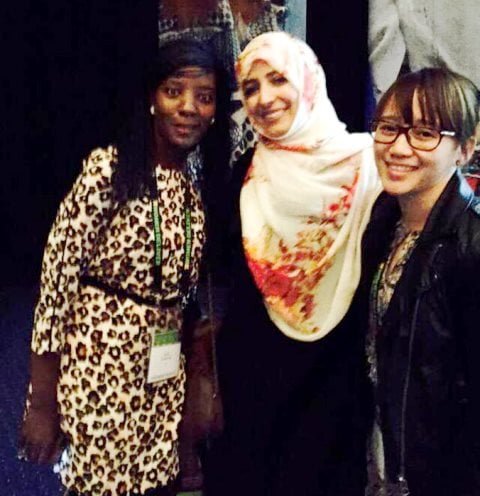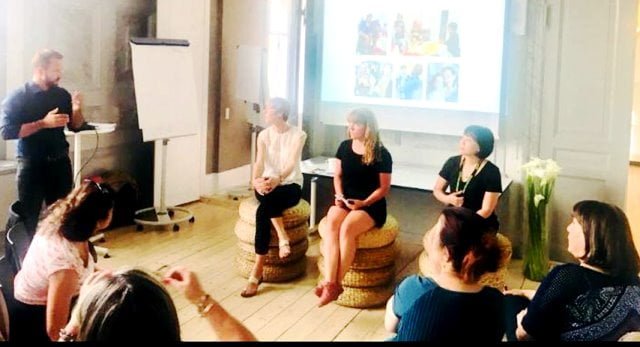- THERESE MARIE BABA-CHRISTENSEN
LAST OF 2 PARTS
Filipina women, the good migrant woman
I joined in the fight in pushing for the Filipina migrant women stories to be represented in the Danish media. I worked to get their stories into women’s magazines and not have their stories twisted, but taken from their premise.
One woman told me after one of the interviews about how empowering it was to finally put words to the hell that she had been put through, and that maybe, through her story, Danish society could also see that violence can also be inflicted by the Danish men and not just the brown-skinned man which is typically typecast as the violent one in Denmark.

There is huge pride when Pinoys join in the Danish X-factor.
The Pinoy pride is overwhelming, perhaps because of the positivity and lightheartedness of the topic. But when migrant women take up space in Danish media and talk about violence even in the slightest empowering way, the judging and bashing are harsh within our community. They became the cautionary tale.
Activism, a safe space in Denmark
When I left the Philippines, I was used to the label tagged to me as a “rebel and an activist” without even fully comprehending the word. The reason for the label was because I tended to ask questions and offend people when I questioned the status quo. I was a rebel girl in the sense that I questioned the social inequality that was experienced by women. I was naturally curious, a budding feminist. However, these were not viewed positively in the Philippines.
I know how loaded the word “activist” is in the Philippines then and now, and I am ever thankful that Denmark gave me the space to grow as a feminist. I grew because I could not close my eyes to the social inequality that smacked me in the face every day.
Several years in Copenhagen gave me the chance to be part of the parade celebration for “Kvindernes kampdag”.
I was very grateful for the chance to gather women from different migrant backgrounds to join in the celebration so we could be represented. There were also side events where I was a speaker and held workshops to tackle different issues, from combatting rape culture to understanding violence in a relationship.

The work that I did as a consultant for two Danish NGOs and as a previous Au Pair gave me an in-depth understanding of the struggle that women with migrant backgrounds go through. However, it also gave me extreme frustration because of the mismatch I saw on several fronts.
The women that I assisted out of abusive relationships were always guilt-ridden because they were reminded by families to be grateful. That “they are blessed to be here”, but they pay for this by living their daily lives at risk of losing one’s financial control, trapped in a marriage full of violence, or fear of losing one’s child because the woman’s right to stay is dependent on her marriage to her husband.
I acknowledge my privilege as a feminist in Denmark. I voice out my opinions without the fear of persecution that I would meet in the Philippines. But I also struggle with the feeling of being ungrateful, because in my blood, life-long values of “utang na loob” are entrenched. I still sit back with a feeling that it is audacious of me to question the country that afforded me to complete my Master’s degree.
But you see, this is what I see as the beauty of living in a country where critical thinking is not a crime.
I can still say “thank you” and still disagree. I can disagree with the idea that not being from the country invalidates that person’s right to claim a life of safety.
I can still disagree with the state’s structural policies that leave women in a position of greater vulnerability and to a very unequal footing in marriage since their stay in the country is dependent on their husbands.
I can still disagree with the stereotypes that my brown skin brings with it. I am an ideal cleaning lady, it’s assumed, when getting entered in the system for jobs because they see my skin before my capabilities.
So when people argue that maybe it is just for migrant women to not get the same things as women who are ethnically born and raised here in the country, I would disagree.
Migrant women have the right to live a life free of violence.
She has the right to leave an abusive partner without being threatened by the separation from her child or children.
She has the right to financial autonomy and independence
She has the right to say no and have sexual boundaries.
She may be brown with dark irises.
But she stands with the same rights as the rest of these women in this country. – NWI




